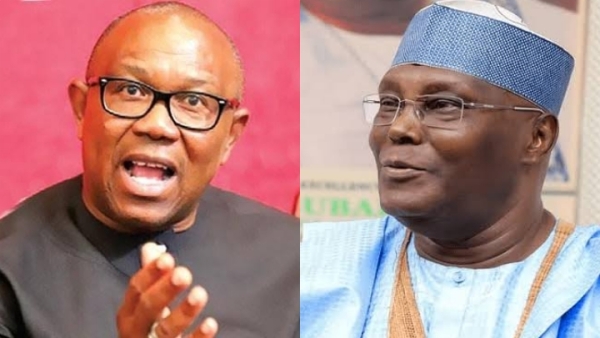The 2023 presidential candidates of the Peoples Democratic Party, Atiku Abubakar, Labour Party’s Peter Obi, and the National Secretary of the Coalition of United Political Parties, Peter Ahmeh, have called for electoral reform ahead of the 2027 elections.
They said electoral reform was a crucial element that would aid the ongoing national coalition negotiations in achieving its objectives.
As the election approaches and coalition talks among opposition leaders gain momentum, there have been numerous calls for the amendment or reform of electoral laws.
Atiku, through his media aide, Paul Ibe, stated that electoral reform to uphold the integrity of elections were necessary.
In an interview with Sunday PUNCH, Atiku stated that electoral reform was a key topic in coalition negotiations and highlighted the need for secure electronic transmission of results.
He stated, “It’s all part of the process. The rules of engagement need to be up to speed. They must reflect best practices. Even the administration recognises that there are shortcomings with the electoral law and that it needs to be amended. I believe the leaders have not only spoken about this but have also taken steps. For instance, they submitted a memorandum for constitutional amendments.
“So, it is part of the discussion. Well, the goal is to ensure the integrity of the process. It is not enough to encourage people to vote if their votes won’t count. There needs to be certainty about whether the votes will be counted. For example, the electronic transmission of results needs to be secure. It shouldn’t be left to the discretion of INEC, depending on the political situation, leading to manual transmission of results.
“This is crucial because it was a major issue in the last election. There was a disparity between the votes at the polling units, which should have been automatically transmitted. Instead, manual collation and transmission led to inconsistencies.”
Obi, speaking through the National Coordinator of the Obidient Movement, Tanko Yunusa, emphasised focus on electoral reforms that would improve the process.
The former Governor of Anambra State also called for reforms that would prevent the defection of politicians from one party to another.
He stated “We are looking for an electoral reform that will have a positive impact on our elections, ensuring that we have a free and fair election that is accepted by the majority of the people, not just a few.”
“We want an electoral system that will address the issue of whether, when you win a seat in a political party, you remain in that political party. Regardless of the challenges or issues within the party, you stay and work to correct them, not jumping from one political party to another like a prostitute. We don’t want that kind of electoral system.
“We want an electoral system where the result of every election at every polling unit will be electronically transmitted with no easy way for manipulation. We want an electoral system that can protect political parties so that we will have proportional representation. Proportional representation means that if you have 5% of the total votes in the election, it should be represented in parliament.
“We want an electoral law that will criminalize anyone seen to have manipulated the system, with immediate enforcement. This means that the adoption of Justice Mohammed Uwais report suggests that INEC should be divided into three parts: the delineation commission, the electoral commission, and the enforcement commission. This way, we can begin to have a credible electoral process in Nigeria.”
Similarly, Ameh called for electoral reforms that would allow all elections to be held on a single day, stating that it would reduce costs.
In an exclusive interview with Sunday PUNCH, the CUPP National Secretary explained that holding elections on separate days had contributed to voter apathy.
He stated “I think the critical issue is that they should allow all elections to be conducted on the same day. It’s harming our democracy, especially at the state level, where elections often have to be held separately.
“The level of voter apathy that has characterised our elections over the years is partly due to these elections being held on different days. Conducting elections on two separate days leads to fatigue and frustration.
“When you do reverse logistics—packing up the materials after the elections and returning them to the INEC centers—you end up paying for this process twice.”


